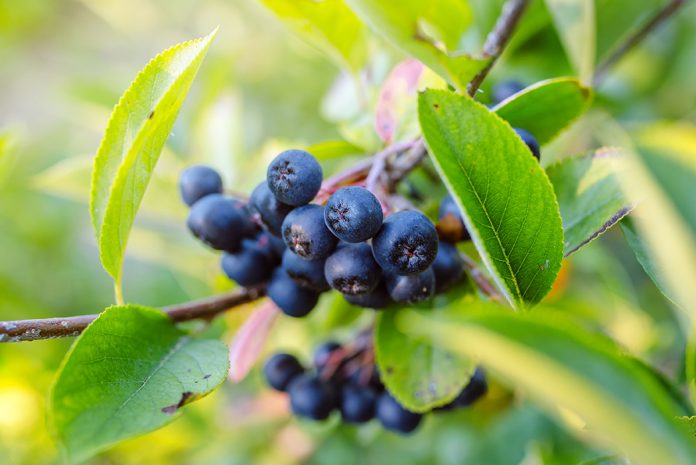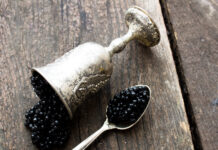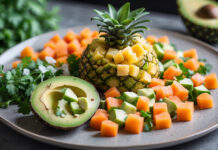
Antioxidants protect our health but you don’t have to spend lots of money on expensive supplements or exotic fruit extracts as there’s a plentiful supply – and powerful ones at that – hiding in a fruit and veg shop near you.
Free radicals
To understand the benefit of antioxidants, we first have to understand the damaging effects of harmful molecules called free radicals that seem hell-bent on wreaking havoc in your body, causing damage to cells, proteins and DNA.
The destructive capability of free radicals lies in the fact that these oxygen-containing molecules carry a single electron. Because electrons much prefer to travel in pairs, they try to snatch a partner electron from other molecules.
They’re not fussy – one from a cell wall will do, even though it may cause that cell to die and taking one from your DNA may cause a mutation that leads to cancer. They can also make LDL – the ‘bad’ cholesterol – more likely to get trapped in an artery wall, which is bad news. Free radicals can leave a trail of destruction if left to run riot.
Free radical production
They are produced naturally just by breathing, moving and when your body converts food into energy. But they are also generated in much higher numbers by alcohol consumption, cigarette smoke, pollution, pesticides, ultraviolet light, stress, lack of sleep and fried foods – especially meat.
So how do you combat them? The main defenders are antioxidants that can balance and disarm free radicals by donating an electron without turning into electron-scavenging substances themselves – they knock them out of the game.
There are a multitude of antioxidants in foods – especially in plant foods. The better-known ones are the ACE vitamins A (beta carotene), C and E plus selenium, lycopene and polyphenols, but there are many, many more.
Atherosclerosis
Research in the 1990s revealed how free-radical damage was involved in atherosclerosis – where arteries become clogged with fatty substances – but they were also thought to contribute to cancer, sight loss and a host of other chronic conditions. Studies showed how people with low intakes of antioxidant rich fruit and vegetables were at greater risk of developing these conditions than those who ate plenty of fresh fruit and veg.
A study published in Nutrition Journal listed the antioxidant content of more than 3,100 foods, drinks, spices, herbs and supplements used across the world to produce the most comprehensive antioxidant database ever published.
The authors said ‘it shows that plant-based foods introduce significantly more antioxidants into human diet than non-plant foods’.
Sources
Other studies show how vegan diets can benefit athletes suggesting the higher antioxidant levels may offer advantages in recovery.
There’s no doubt, fruit and vegetables are an excellent source and you can safely eat as much as you like.
Viva! Health recommend that you aim for 8-10 portions a day, the more the merrier. Brightly-coloured varieties optimize your antioxidant intake – sweet potato, carrots, red peppers, purple sprouting broccoli, red cabbage, asparagus, curly kale, berries and avocados.
Fruits
Berries are a particularly good source, especially blackcurrants, strawberries, blackberries and cranberries. A handy tip for fruits: those that don’t go brown when exposed to air, such as mango, kiwi and orange, contain more antioxidants than those that do – apple, pear and banana.
Greens
Good vegetable sources include artichokes, curly kale, red and green chilli, black and green olives, red cabbage and beetroot.
Nuts
When it comes to nuts, most antioxidants are found in the outer skin, for example in almonds, pecans and walnuts. Brazil nuts are an exceptional source of the antioxidant selenium – just two a day can increase blood levels by more than 60 percent.
Stay in the pink
Lycopene is a pigment that helps give red and pink fruit and vegetables their colour and cooking can actually boost levels.
Best sources are tomatoes and tomato products – organic ketchup may contain up to three times as much lycopene as non-organic. It is also found in pink grapefruit, watermelon, guava and papaya.
Go wholegrain
Wholegrain foods such as wholemeal bread, brown rice and wholegrain pasta contain far more antioxidants than their white, processed equivalents.
Chocolate – darker the better
Chocolate can be a rich source, too, but it has to be dark – the more cocoa, the better so go for 75-99 percent.
Drinks
Black tea, green tea, red wine, grape juice and coffee all contain significant amounts but obviously wine, tea and coffee should be drunk in moderation because of the alcohol and caffeine respectively.
Water contains no antioxidants, cola and cow’s milk are also close to zero.
The spice of life
Herbs and spices are great providers, particularly clove, peppermint, allspice, cinnamon, oregano, thyme, sage, rosemary and saffron.
Experiment and sprinkle liberally.
Do you need a supplement?
Current evidence does not support the use of antioxidant supplements, it’s better to get them from a diet rich in fruit and vegetables.
There’s no magic bullet and high doses of supplements can be harmful. For instance, high-dose beta-carotene supplements have been linked to an increased risk of lung cancer in smokers, while high doses of vitamin E may increase the risk of prostate cancer and haemorrhagic stroke – a type of stroke caused by bleeding in the brain.
Antioxidant supplements may also interfere with some medications – vitamin E has a blood-thinning effect that could lead to problems in people taking the anticoagulant Warfarin.
Free radicals not all bad?
Recent research suggests that free radicals at low levels may not be all bad. They can help destroy invading pathogenic microbes as part of our body’s natural defence mechanism and people who have defects in this system tend to suffer persistent infections.
Evidence shows that free radicals also act as signalling molecules involved in many important functions, including making the heart beat with the correct force. So, at low or moderate levels, it seems that free radicals may be vital to human health.
The entire diet is the key factor that determines our risk of disease, with plant foods exerting a protective and beneficial effect.
The high content of vitamins A, C and E and polyphenols in fruits and vegetables may be one of the main reasons. So, if you’re sick, stressed or tired – reach for the broccoli and blueberries.











